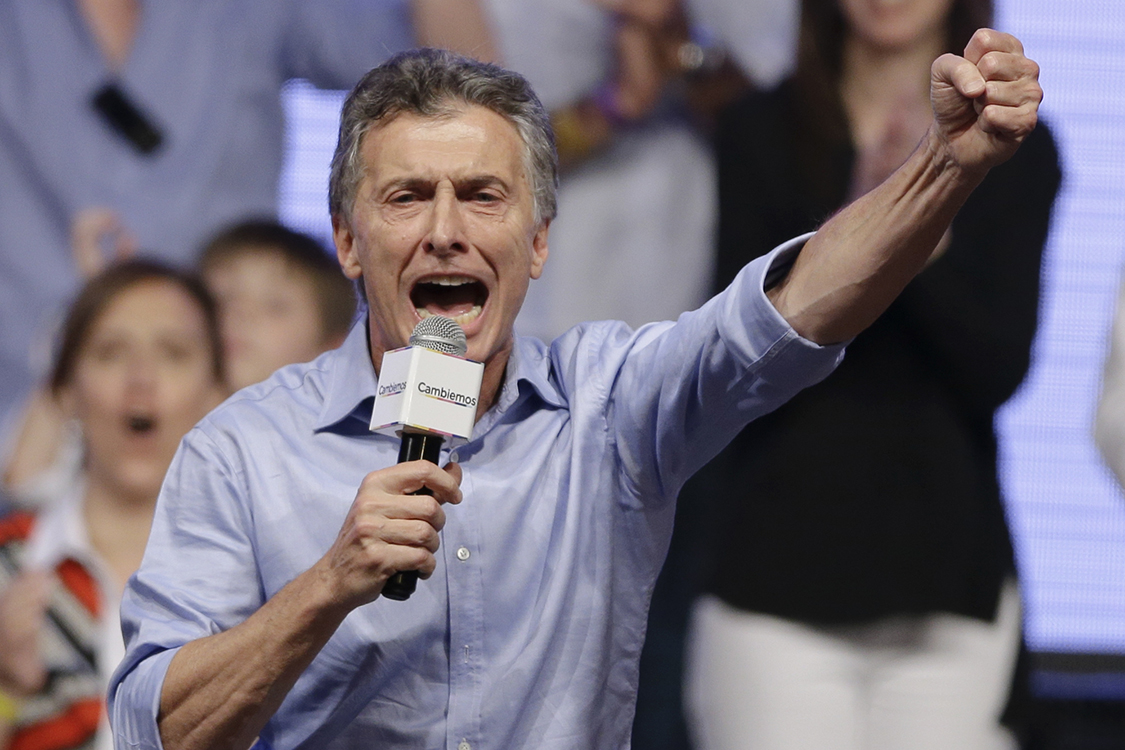Real Change in Argentina
Tuesday, November 24th, 2015November 24, 2015
On Nov. 22, 2015, Argentines voted for significant change. In a presidential runoff contest, voters elected opposition candidate Mauricio Macri of the center-right Cambiemos coalition. Cambiemos is Spanish for let’s change. It was the first presidential run-off in Argentina’s history. Macri defeated Daniel Scioli, the candidate of the governing Peronists, with about 51 percent of the vote. Scioli beat Macri in the first round of voting on October 25, but not with enough votes to be declared president. Scioli is a former vice president of Argentina who belongs to the Front for Victory.

Opposition candidate Mauricio Macri celebrates after winning a runoff presidential election in Buenos Aires, Argentina, Sunday, Nov. 22, 2015. Macri won Argentina’s historic runoff election against ruling party candidate Daniel Scioli. Credit: © Ricardo Mazalan, AP Photo
Macri’s election ended more than a decade of government by the Peronists, led by former President Néstor Kirchner, then his wife, President Cristina Fernández de Kirchner, since 2003. Fernández de Kirchner, who has served two terms as president, was constitutionally barred from seeking a third term. Historically, the Peronists have supported populist policies aimed at helping ordinary people. However, under Fernández de Kirchner, Argentina also has experienced high inflation, weak economic growth, and a large deficit. In addition, Fernández de Kirchner has created conflict with her public attacks on critics of the government and her confrontational stance regarding the Falkland Islands, claimed by both Argentina and the United Kingdom.
Macri, a wealthy businessman of Italian ancestry, is the mayor of Buenos Aires and a former president of the popular Boca Juniors soccer team. He ran on campaign promises to reduce the state’s control over the economy; bring new investment to Argentina; fight narcotics trafficking and political corruption; and change foreign policy, for example by strengthening ties with the United States. Although Macri has said that he will not reverse all the government’s leftist policies, his critics fear he will end social welfare programs. Scioli warned voters that Macri would introduce “savage capitalism” in government. However, Sunday’s election indicated that for many voters, Macri represented hope, a fresh start, and a chance for real change in a country with some real problems. Macri is expected to take office on December 10.
Other World Book article


